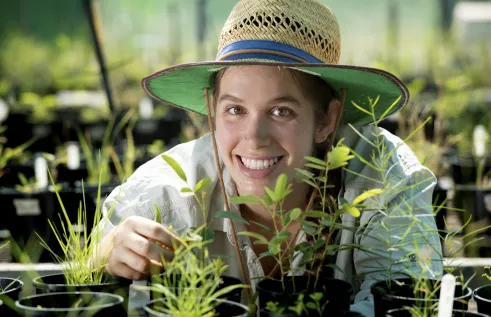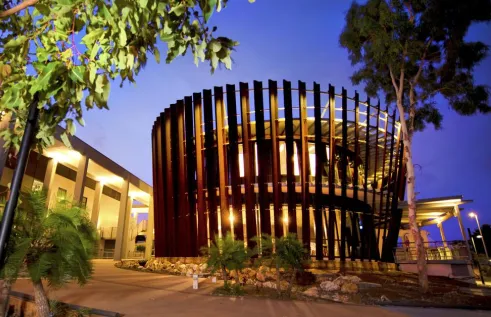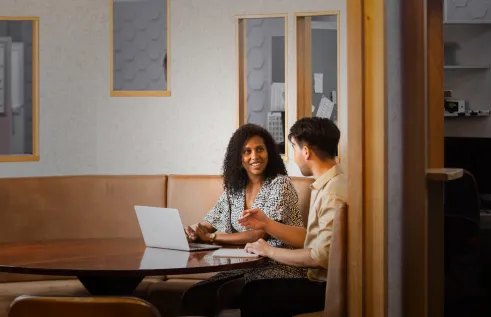Student life
5 top tips on being an eco-friendly student

We know: you’re studying, maybe working, maybe have a family, you socialise and have many, many commitments. Being green probably isn’t high on your priority list. But, it should be!
Why? It’s easy to make a few small changes that are good for the environment and good for the wallet. Let’s be honest, anything that saves money while you’re studying is going to be very handy.
1. Buy reusable products or products made of recycled content
There’s a great range of products available that are made from recycled content or can be reused over and over again. Here are some suggestions:
- Show the trees some love and buy 100% recycled paper for printing. Better yet – don’t print at all. Type your notes or read via screen and save the environment the pollution and yourself the printing costs.
- Fill your pencil case with good karma by filling it with pens and other stationary made from post-consumer waste.
- Enough with the plastic bags! Use reusable and/or recycled bags. Can't get away from it? Some supermarkets provide facilities to recycle your soft plastics.
- Can’t go without that coffee to fuel your study sesh? Invest in a CDU keep cup so you can look ridiculously cool as you sip your java. Some coffee shops will even charge you less if you bring your own reusable cup. Huzzah!
- Make bottled water a thing of the past. Use reusable drinking bottles.
2. Recycle, recycle, recycle!
Think about all the paper you use for your lecture notes and assignments. Now add the take out containers, plastic water bottles, soft drink cans and snack food packaging from those late-night study sessions. In Australia, we’re lucky to have curb-side recycling in most areas, so make the most of it by placing your recyclable items in the right bin. Oh, and remember to take the bins out too (that’s the hardest part). Check out Darwin City Council’s guide on recycling to brush up your recycling skills.
Recycling is more than just putting your papers and containers in the correct bin though. Think about your old clothes and study books: don’t throw them out – resell them and make some money back. If you don’t have time to sell your unwanted stuff, you can donate your good-quality clothing to your local second hand store.
Got a bunch of old textbooks you can’t be bothered selling? Check out student groups on Facebook and see if you can sell them, otherwise, donate them to Give Now.
3. Use sustainable transport
Gyms can be expensive, so work up a sweat by using active modes of transport like walking or cycling. Public transport and carpooling are other a great sustainable options.
Some of the benefits of using sustainable transport:
- Increased capacity, and reduced congestion, in the overall transport network
- Reduced environmental impacts
- Improved public health and reduced healthcare costs
- Improved community wellbeing and social cohesion.
Source: Enviro Collective CDU
4. Reduce your power usage
When it’s not in use, turn it off at the power point. Stand-by power wastage is a real thing! It’s easy to turn off your appliances off at the wall; your wallet and the earth will thank you.
While you’re at it, turn off lights when you leave the room, and replace your old school light globes with energy-smart LED light bulbs. Fun fact: energy-saving LEDs will use approximately 1/5 the energy a regular globe use and will last longer.
LED bulbs cost a bit more than normal bulbs, but you’ll see the savings in your electricity bill.
5. Buy local, eat local
Buying local and organic can sometimes be expensive, but it doesn’t have to be! Hit your local farmers market to buy fresh fruit and veg from your local region and you’ll also be supporting the local guys!
If you’re not worried about getting your hands dirty, why not grow your own fruit and veg? If you don’t have the space for a veggie patch, get involved in your local community garden and make friends, expand your gardening knowledge and contribute to the community while you indulge your green thumb. If you’re in Darwin, check out CDU-supported Lakeside Drive Community Garden.
That's it! Remember, every little thing you do can make a difference!
Related Articles

Intensive study: CDU’s short trips for big career gains
Starting her Graduate Diploma of Environmental Management at Charles Darwin University (CDU) while working full-time for WA's Parks and Wildlife Service, Ailsa initially saw her intensive unit as just a practical scheduling option.
Read more about Intensive study: CDU’s short trips for big career gains
Why I chose CDU for my research degree
Charles Darwin University may be small, but we have an impressive international reputation for research. Here, some of our researchers explain what made them choose to pursue a Higher Degree by Research with CDU.
Read more about Why I chose CDU for my research degree
How to finish a PhD quickly
The idea of committing a chunk of your life to research can be both exciting and daunting, but there are ways to make sure your timelines don’t blow out and your motivation doesn’t run out. CDU’s Dean of Graduate Studies, Professor Tara Brabazon, offers her top 10 tips for submitting your thesis quickly.
Read more about How to finish a PhD quickly